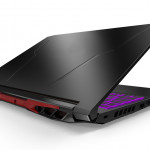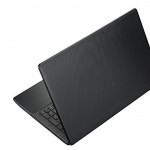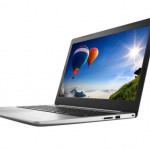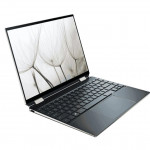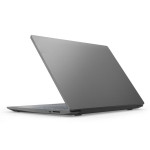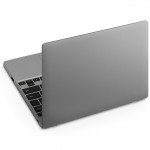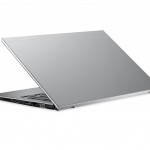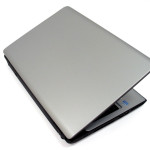Top 6 Laptops for Music Production in 2023

In today's digital age, the technology we use profoundly shapes the music we create. A vital tool in this creative process is the laptop, which serves as a hub for composing, recording, editing, and mixing music. With the right device, a music producer can create studio-grade compositions from virtually anywhere. This article aims to guide you in choosing the ideal laptop for music production. We will explore the key features to consider when buying a laptop and review six of the best laptops on the market for music production.
2. The Importance of Selecting the Right Laptop for Music Production
The crux of modern music production lies in the heart of digital audio workstations (DAWs), software that enables the recording, editing, and creation of music. DAWs demand high processing power and memory to function seamlessly, especially when running multiple tracks or using advanced plugins. Therefore, the laptop you choose has a direct impact on your music production workflow.
Selecting a laptop with insufficient specifications can lead to performance issues like lagging or crashing, which can disrupt the creative process and lead to data loss. On the other hand, an overpowered laptop may be an unnecessary expense if your production requirements are modest. Balancing these factors is key to a smooth and efficient music production experience.
Moreover, music production involves dealing with heavy audio files and potentially multiple software tools. Thus, sufficient storage space is crucial. Also, the quality of the sound output can significantly affect the precision of your work, making audio hardware another critical factor to consider.
Lastly, portability could be a decisive factor for music producers who travel frequently. A lightweight laptop with a robust battery life can be an indispensable tool for creating music on the go.
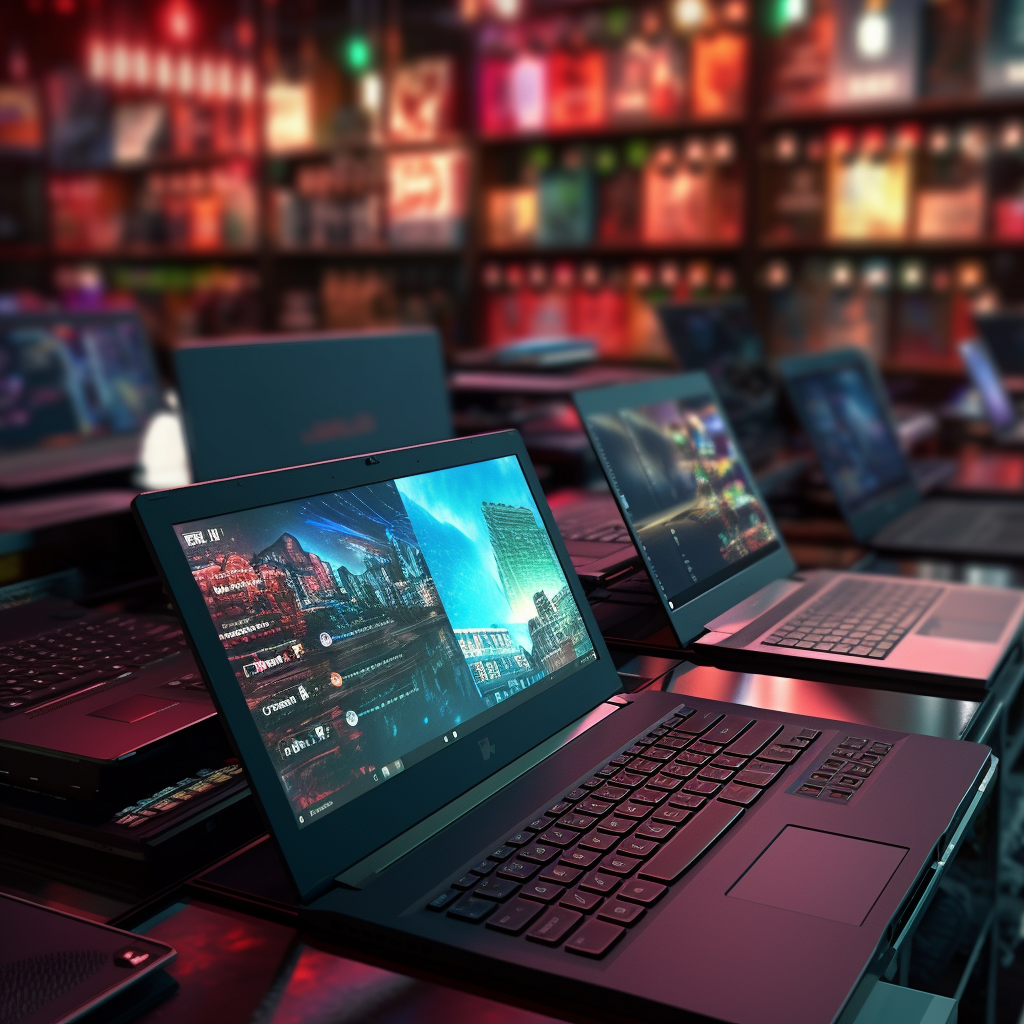
3. Key Features to Consider When Buying a Laptop for Music Production
When purchasing a laptop for music production, some key features and specifications need careful consideration to ensure optimal performance. Here's an in-depth look at the main elements you should factor into your decision:
3.1 Processor (CPU)
The central processing unit (CPU) is the laptop's brain, responsible for running your DAW and processing all the tasks associated with music production. When handling complex projects involving multiple tracks and plugins, a powerful processor ensures smooth operation without lag or slowdown.
For most music production tasks, a modern multi-core processor (i.e., quad-core or higher) with a clock speed of at least 2.0 GHz should suffice. However, if you plan to run demanding software or use a significant number of plugins simultaneously, a more powerful CPU may be necessary.
3.2 RAM (Memory)
Random Access Memory (RAM) is the laptop's short-term memory that stores data the CPU may need to access quickly. More RAM allows your laptop to handle larger projects and use more plugins without slowing down. A minimum of 8GB RAM is typically recommended for music production, but 16GB or more can provide better performance, especially for larger projects.
3.3 Storage
Laptops typically offer two types of storage: Hard Disk Drive (HDD) and Solid State Drive (SSD). HDDs offer more storage space at a lower cost, but SSDs are significantly faster and more reliable. For music production, where accessing large files quickly is essential, an SSD is often the preferred choice. A minimum of 256GB storage is recommended, but if you plan to store many projects and samples on your laptop, you may want to opt for a larger capacity.
3.4 Audio Interface and Sound Quality
The built-in sound card of most laptops is sufficient for basic audio tasks, but for high-quality music production, an external audio interface is usually recommended. This device connects to your laptop and provides high-quality audio input and output, with connections for microphones, instruments, and studio monitors. Sound quality can make or break your productions, so don't overlook this crucial aspect.
3.5 Portability and Battery Life
If you plan to produce music on the go, the size, weight, and battery life of your laptop can be crucial considerations. Smaller laptops are more portable but may compromise on performance and connectivity. Additionally, high-performance laptops can drain their batteries quickly, so a balance between performance and battery life is key if portability is important to you.
3.6 Screen Size and Resolution
While not directly affecting music production, screen size and resolution can significantly impact your workflow and comfort. A larger, high-resolution screen makes it easier to manage complex DAW interfaces, plugins, and multiple tracks. However, larger screens can add weight and reduce battery life, so consider your needs and preferences.
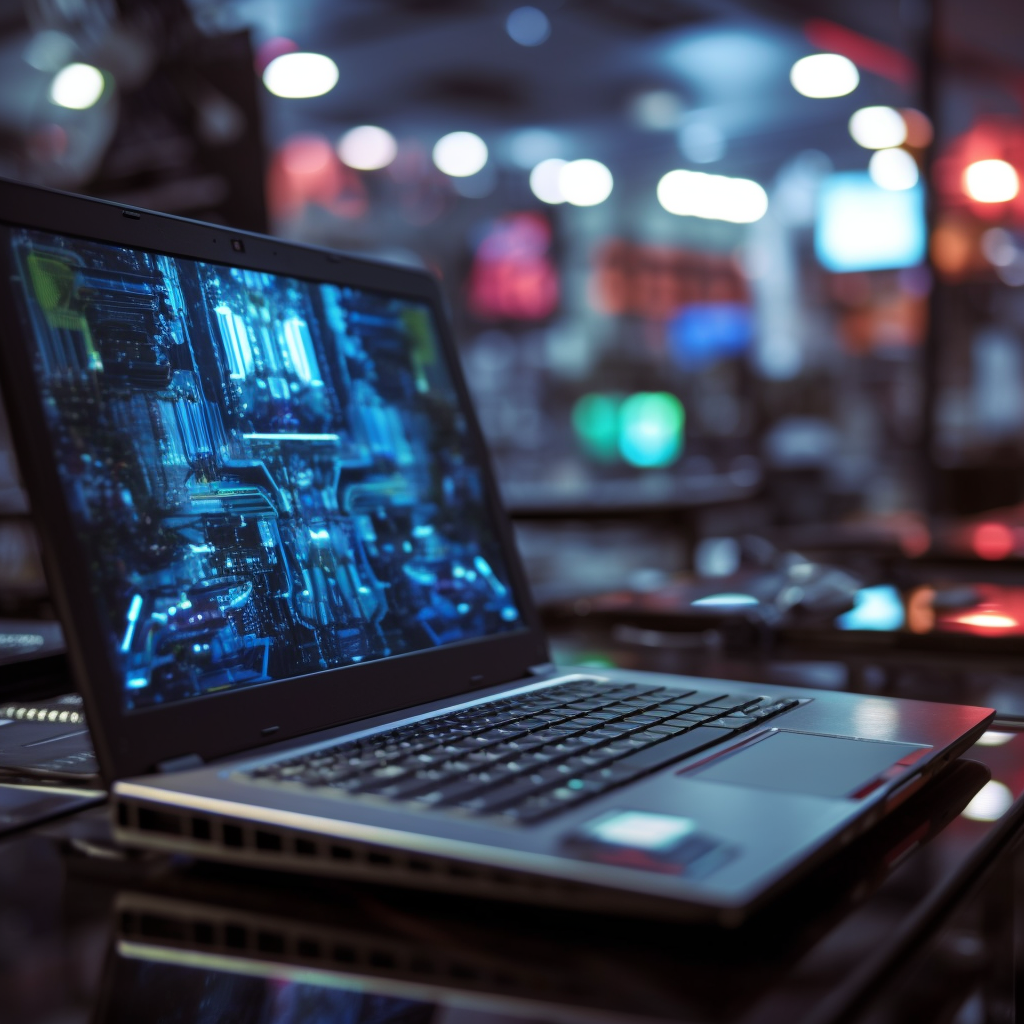
4. In-depth Review of the Top 6 Laptops for Music Production
In this section, we'll apply the criteria established in the previous chapter to provide an in-depth review of six of the best laptops currently available for music production. Each laptop has been evaluated based on its processor, RAM, storage, sound quality, portability, and screen size.
4.1 Apple MacBook Pro
Overview: Apple's MacBook Pro is a popular choice among music producers, known for its impressive performance, robust build quality, and seamless software-hardware integration.
CPU: MacBook Pro models are equipped with Apple's M1 chip, which provides excellent processing power to handle demanding music production tasks. The 8-core CPU offers a good balance of efficiency and performance.
RAM: The MacBook Pro offers configurations from 8GB to 16GB of unified memory. This should be sufficient for most music production tasks, but for heavy-duty use, the 16GB option is recommended.
Storage: Depending on the model, MacBook Pro offers SSD storage from 256GB up to a whopping 2TB. The SSD drives in MacBook Pro are known for their speed and reliability.
Audio Interface and Sound Quality: MacBook Pro's built-in audio interface provides high-quality sound output. However, like most laptops, for professional music production, an external audio interface is recommended.
Portability and Battery Life: The MacBook Pro boasts excellent battery life, with up to 20 hours of use claimed by Apple. This, coupled with its sleek design, makes it a good option for portable music production.
Screen Size and Resolution: The MacBook Pro comes in two sizes: 13.3-inch and 16-inch. Both offer high-resolution Retina displays, ensuring a clear, vibrant visual experience.
4.2 Dell XPS 15
Overview: The Dell XPS 15 is a high-performance Windows laptop that offers top-tier specs in a compact, attractive design.
CPU: XPS 15 models are powered by up to a 10th Generation Intel Core i7-10750H processor, which provides robust processing power for demanding DAWs and plugins.
RAM: The XPS 15 comes with up to 64GB DDR4-2933MHz RAM, providing ample memory for even the most demanding tasks.
Storage: Dell offers SSD storage options up to 1TB for the XPS 15, ensuring quick access to your projects and samples.
Audio Interface and Sound Quality: The XPS 15 features Waves MaxxAudio Pro, a suite of studio-quality sound enhancements. Nevertheless, an external audio interface is recommended for professional music production.
Portability and Battery Life: With a weight starting at 4 pounds and a slim design, the XPS 15 is relatively portable. Battery life varies based on usage but can last up to several hours on a single charge.
Screen Size and Resolution: The XPS 15 features a 15.6-inch display with up to 4K UHD+ (3840 x 2400) resolution, offering a large, sharp screen for managing your DAW and plugins.
4.3 ASUS ROG Strix Scar III
Overview: The ASUS ROG Strix Scar III is a powerful gaming laptop that doubles as an excellent machine for music production, featuring top-tier specs and high-quality audio hardware.
CPU: This laptop comes with up to a 9th Gen Intel Core i9 processor, offering ample processing power for running intensive DAWs and multiple plugins.
RAM: The ASUS ROG Strix Scar III can be configured with up to 32GB DDR4 2666MHz RAM, providing smooth performance for even complex music production tasks.
Storage: This model offers a speedy 1TB PCIe NVMe SSD, ensuring quick access to your large music files and projects.
Audio Interface and Sound Quality: The laptop features an excellent audio system with side-firing speakers and Smart Amp technology for clearer sound. For professional music production, an external audio interface is recommended.
Portability and Battery Life: As a gaming laptop, the ROG Strix Scar III is relatively heavy and large, making it less portable. Battery life is also limited due to the high-performance hardware.
Screen Size and Resolution: The laptop features a large 15.6-inch display with Full HD (1920x1080) resolution, providing ample screen space for managing complex projects.
4.4 HP Spectre x360
Overview: The HP Spectre x360 is a high-end 2-in-1 laptop known for its sleek design, excellent performance, and long battery life.
CPU: Depending on the model, the Spectre x360 offers up to a 10th Gen Intel Core i7 processor, providing sufficient power for most music production tasks.
RAM: This laptop can be configured with up to 16GB DDR4 RAM, which should suffice for most music production needs.
Storage: The Spectre x360 offers up to a 1TB SSD with 32GB Intel Optane memory, ensuring quick and responsive performance.
Audio Interface and Sound Quality: HP has partnered with Bang & Olufsen to provide high-quality audio on the Spectre x360. However, an external audio interface is still recommended for professional music production.
Portability and Battery Life: The Spectre x360 is slim and lightweight, making it highly portable. Additionally, it offers excellent battery life, with up to 22 hours on a single charge.
Screen Size and Resolution: The laptop comes with a 13.3-inch or a 15.6-inch display, both offering Full HD or 4K resolution options for sharp and vibrant visuals.
4.5 Acer Predator Helios 300
Overview: The Acer Predator Helios 300 is a powerful yet affordable gaming laptop that offers solid performance for music production tasks.
CPU: This laptop comes with up to a 10th Gen Intel Core i7 processor, providing ample processing power for running multiple tracks and plugins in your DAW.
RAM: The Acer Predator Helios 300 offers up to 16GB DDR4 RAM, but it's user-upgradable to 32GB, providing more flexibility for heavy-duty tasks.
Storage: The laptop comes with a fast 512GB NVMe SSD. An extra slot is available for SSD expansion if more storage is required.
Audio Interface and Sound Quality: Although it boasts DTS X: Ultra Audio, delivering an authentic 360° spatial sound experience, an external audio interface is recommended for music production.
Portability and Battery Life: Given its gaming laptop nature, the Acer Predator Helios 300 is somewhat heavy and bulky. Battery life is also limited due to the high-performance components.
Screen Size and Resolution: The laptop comes with a 15.6-inch Full HD (1920 x 1080) IPS display, offering ample workspace for your music production tasks.
4.6 Microsoft Surface Laptop 3
Overview: The Microsoft Surface Laptop 3 is a sleek, high-quality laptop that balances performance, portability, and aesthetic appeal.
CPU: The Surface Laptop 3 offers up to a 10th Gen Intel Core i7 processor, providing solid performance for most music production tasks.
RAM: Depending on the model, it comes with up to 16GB DDR4 RAM, which should suffice for the needs of most music producers.
Storage: The laptop offers a range of SSD options from 128GB to 1TB, providing ample storage for your projects and samples.
Audio Interface and Sound Quality: The Surface Laptop 3 features Omnisonic Speakers with Dolby Audio, but for professional music production, an external audio interface is still recommended.
Portability and Battery Life: The laptop's slim, lightweight design and excellent battery life of up to 11.5 hours make it a highly portable option for music production on the go.
Screen Size and Resolution: The Surface Laptop 3 offers a vibrant 13.5-inch or 15-inch PixelSense Display, both with a high-resolution touchscreen for intuitive control.
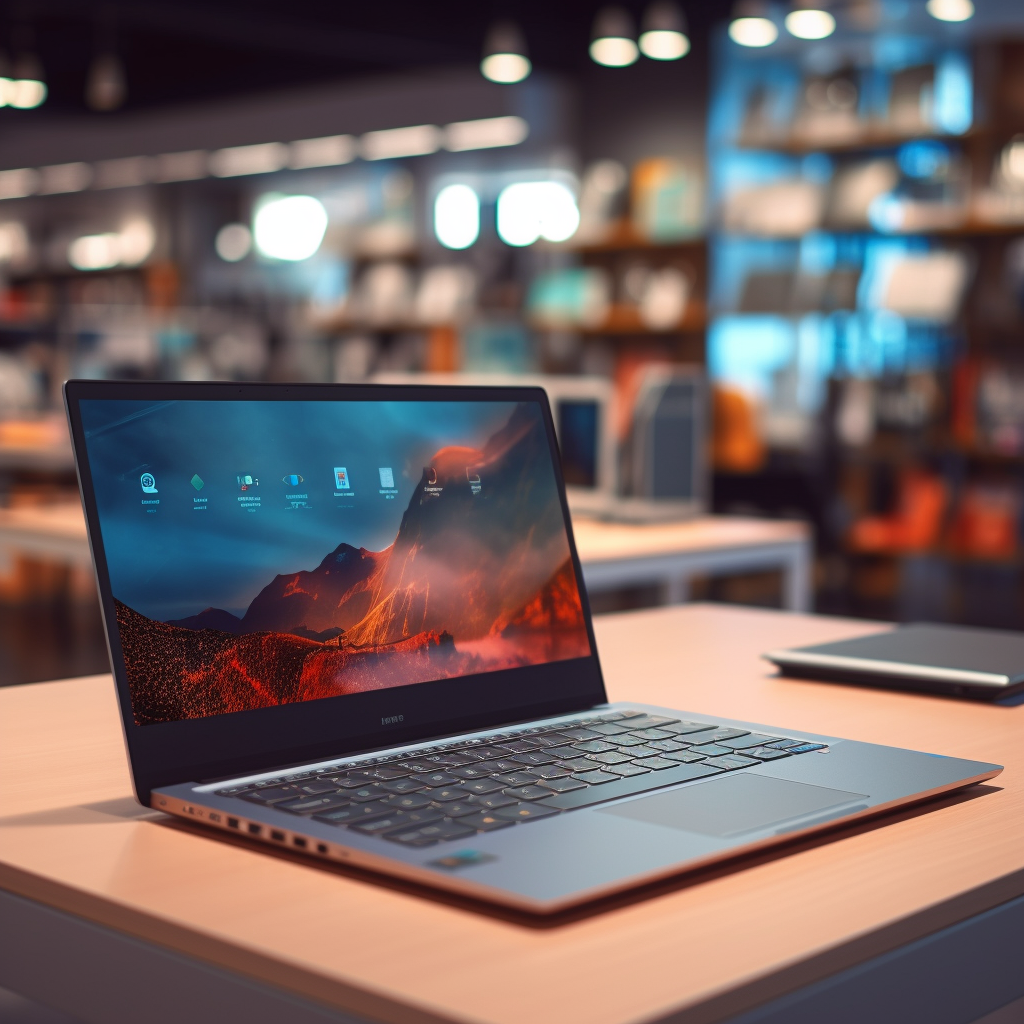
5. Comparison of the Top 6 Laptops for Music Production
In this section, we present a comparison table to help you directly compare the specifications and features of the six laptops discussed in the previous chapter. This overview will allow you to identify which laptop best suits your music production needs and preferences.
| Laptops | CPU | RAM | Storage | Screen Size | Approx. Battery Life |
|---|---|---|---|---|---|
| Apple MacBook Pro | Apple M1 | 8GB - 16GB | 256GB - 2TB SSD | 13.3" / 16" | Up to 20 hours |
| Dell XPS 15 | Up to 10th Gen Intel Core i7-10750H | Up to 64GB DDR4-2933MHz | Up to 1TB SSD | 15.6" | Several hours |
| ASUS ROG Strix Scar III | Up to 9th Gen Intel Core i9 | Up to 32GB DDR4 2666MHz | 1TB PCIe NVMe SSD | 15.6" | Limited |
| HP Spectre x360 | Up to 10th Gen Intel Core i7 | Up to 16GB DDR4 | Up to 1TB SSD + 32GB | 13.3" / 15.6" | Up to 22 hours |
| Acer Predator Helios 300 | Up to 10th Gen Intel Core i7 | Up to 16GB DDR4 (32GB upgradable) | 512GB NVMe SSD + extra slot | 15.6" | Limited |
| Microsoft Surface Laptop 3 | Up to 10th Gen Intel Core i7 | Up to 16GB DDR4 | 128GB - 1TB SSD | 13.5" / 15" | Up to 11.5 hours |
6. Conclusion: Choosing the Best Laptop for Music Production
Choosing a laptop for music production is a significant decision. The best laptop for you will depend on your specific needs, preferences, and budget.
The MacBook Pro, with its M1 chip and robust build quality, offers impressive performance, especially for users already embedded in the Apple ecosystem. The Dell XPS 15 and the ASUS ROG Strix Scar III are high-performance machines, with the Dell offering up to 64GB RAM and the ASUS offering a high-performance Core i9 CPU. The HP Spectre x360 stands out for its excellent battery life and sleek design. The Acer Predator Helios 300 offers good performance at a more affordable price point, while the Microsoft Surface Laptop 3 blends aesthetics with a balanced performance.
Ultimately, the best laptop for music production will offer a powerful CPU, sufficient RAM, ample and fast storage, high-quality audio interface, a comfortable screen size, and be portable enough according to your needs. Remember to consider your DAW of choice and the operating system it works best with. If possible, try before you buy, as there's no substitute for personal experience when it comes to choosing the right tool for your music production journey.
7. FAQ: Common Questions About Laptops for Music Production
In this section, we'll answer some common questions about choosing a laptop for music production. These FAQs are meant to guide potential buyers and users in their decision-making process, addressing typical concerns and considerations.
7.1 Do I Need a High-End Laptop for Music Production?
Not necessarily. The requirements of your laptop largely depend on the complexity of your projects. If you work with many tracks, extensive VSTs, and effects, a high-end laptop with a powerful CPU, ample RAM, and fast storage can significantly improve your workflow. However, simpler projects can be handled by mid-range laptops.
7.2 Mac or Windows for Music Production?
This depends on your personal preference and the DAW you intend to use. Some DAWs like Logic Pro X are exclusive to macOS, while others like FL Studio were originally designed for Windows but now also have a Mac version. Both platforms have high-quality laptops that can handle demanding music production tasks.
7.3 Is 8GB RAM Enough for Music Production?
While 8GB RAM is the minimum recommended for music production, 16GB or more is ideal. This provides enough memory to run your DAW, multiple plugins, and other applications simultaneously, leading to a smoother, more efficient workflow.
7.4 Do I Need a Laptop with a Good Graphics Card for Music Production?
Music production software doesn't usually demand much from a graphics card, unlike video editing or gaming software. Therefore, unless you plan on gaming or video editing on your laptop as well, a high-end graphics card is not necessary.
7.5 Is an SSD Important for Music Production?
Yes, having an SSD can greatly improve your music production workflow. SSDs are much faster than traditional HDDs, which means your DAW and plugins load faster, and saving and opening projects is quicker.

